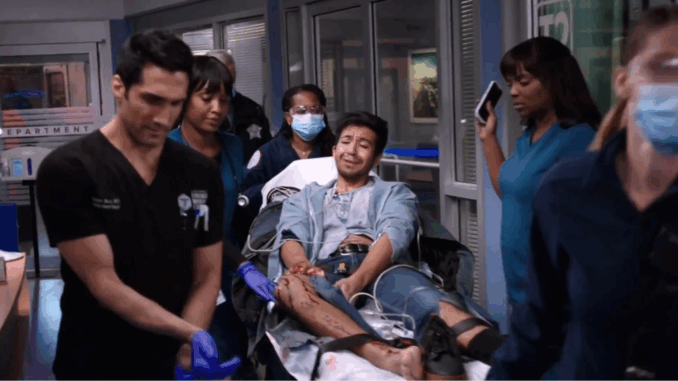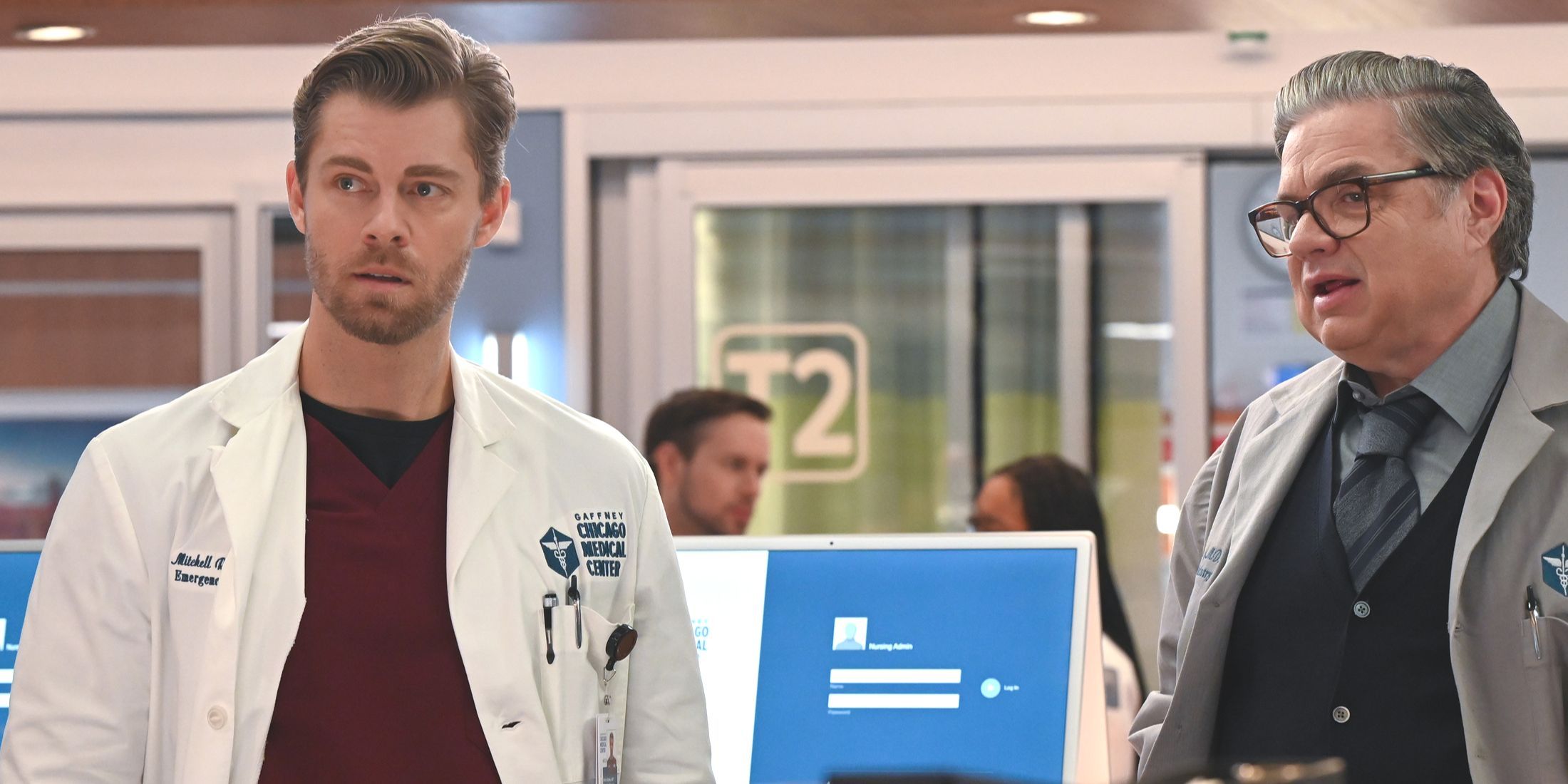
There’s always something going on in the world of Chicago Med. The NBC medical show has ratcheted up its drama in the last several seasons, to the point where it feels like all the characters must be constantly stressed out. Season 9, Episode 6, “I Told Myself That I Was Done With You,” is an example of that — because almost everyone is worked up about something.
“I Told Myself That I Was Done With You” features Zola Ahmad once again running afoul of the wrong people, while Maggie Lockwood bonds with the mother of a young patient in the wake of her own divorce and Sharon Goodwin gets some worrying news. The best subplot involves Mitch Ripley, who crosses a major line with his patient of the week. But all of these characters have the weight of the world on their shoulders, and it works better in some cases than others.
Chicago Med Continues to Have a Zola Problem
Sophia Ali’s Resident Is an Agent of Chaos
Zola Ahmad is one of Chicago Med‘s more frustrating characters, and “I Told Myself That I Was Done With You” exemplifies that. Zola comes across with the same headstrong attitude as Torrey DeVitto’s former character Natalie Manning — except for that instead of fighting with patients and their loved ones, Zola is fighting with, as Crockett Marcel calls it, “the medical-industrial complex.” Zola is rash and does what she feels is right with little regard for consequences. The fact that she spends most of the time questioning what’s going on or actively working in opposition to it makes her harder to connect with, too, because she’s become defined by that aspect of her character.

Chicago Med has alternated between encouraging Zola (through the person of Crockett) and criticizing her (sometimes through Crockett, but more often through Dean Archer, played by actor and podcaster Steven Weber). There’s not a clear direction for her, which creates a problem in this episode. Zola learns that after she raised concerns about a drug, one of the hospital board members successfully argued for it to be replaced. But her victory comes at a price: Archer informs her that the replacement costs ten times more — and the hospital will pass that cost on to its patients, making it even harder for them to afford the care they need. This in itself could be the story, as Zola begins to doubt herself, admits that she’s impulsive, and seems like she’s on the verge of growth.
But then the episode throws in a wrench that puts her right back where she started: the board member happens to work for the company that makes the replacement drug, so his support of her complaint was just a way to benefit his business. Zola is once again up in arms, this time about the inherent conflict of interest. Crockett points out to her that she needs to focus on her patients and that if saving them isn’t enough, she needs to consider a new career. That’s food for thought, but Zola’s plotline would have been more effective if it had been about her continued self-reflection and/or learning more about her rather than going back to the “doctors versus big pharma” narrative.
